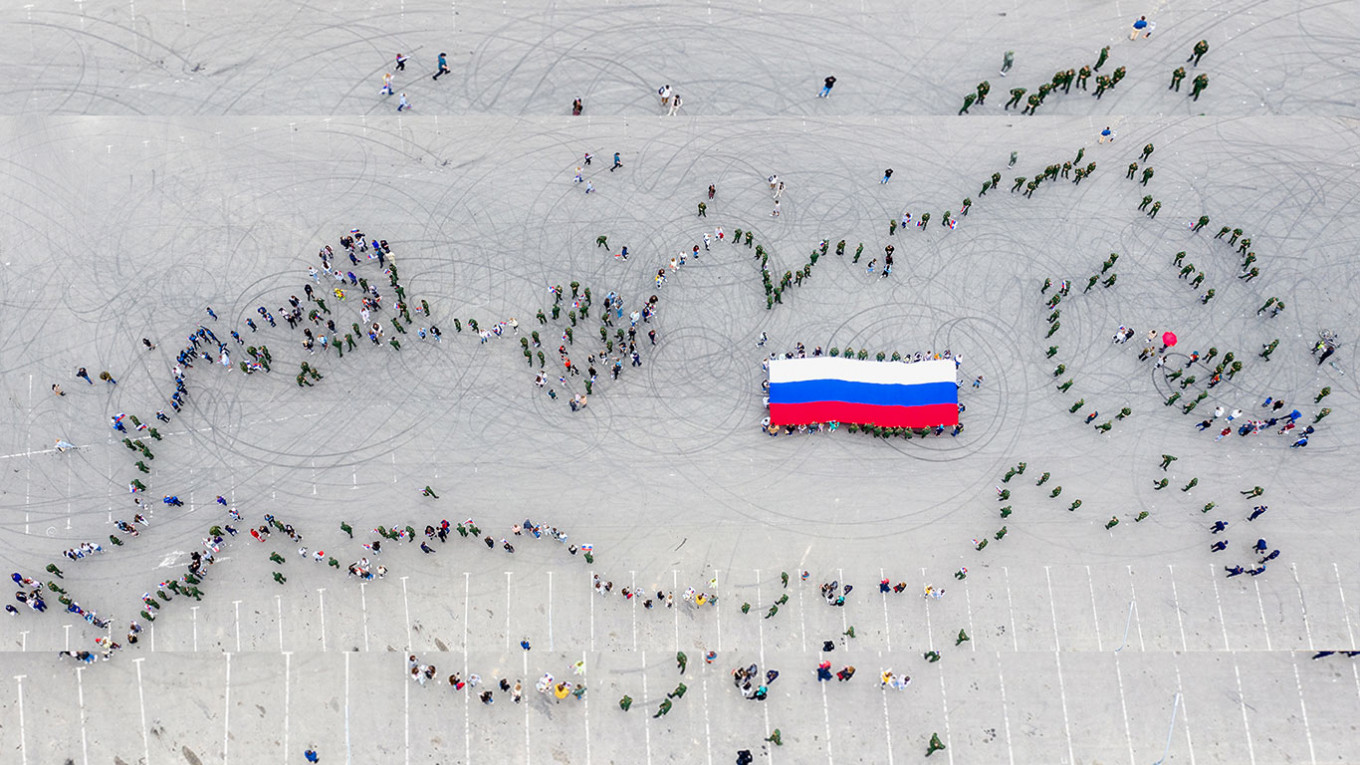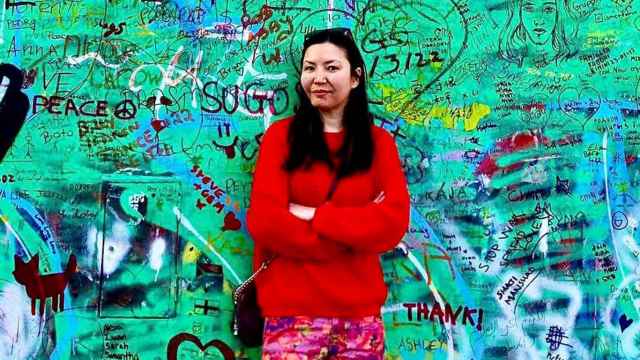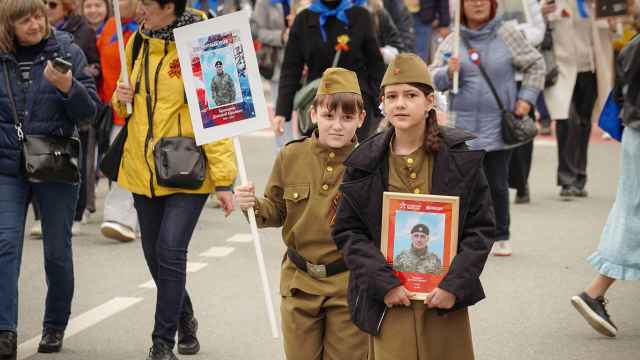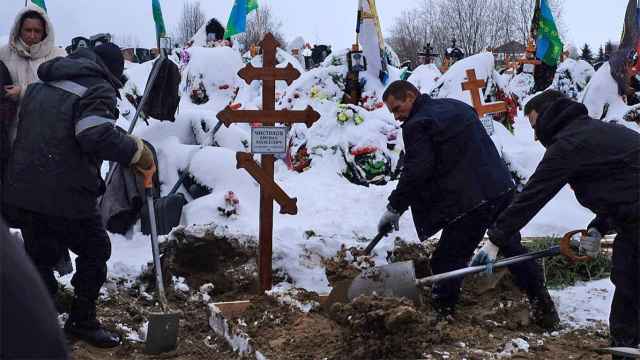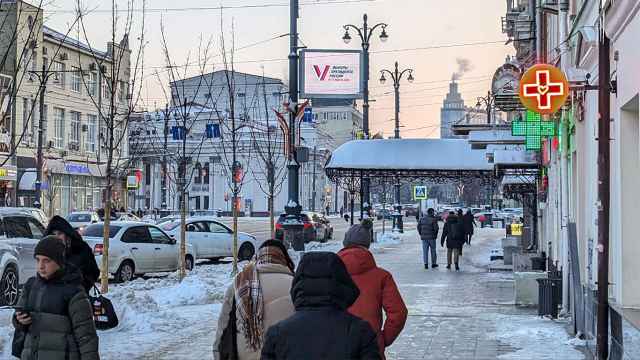As the death toll from Russia’s invasion of Ukraine rises, throwing Kremlin imperialism into sharper focus, activists representing the indigenous non-Slavic peoples of Russia are doubling down on efforts to rally supporters behind demands for greater autonomy.
“War is a trigger for greater national consciousness,” Ruslan Gabbasov, the head of the Bashkir National Political Center, told The Moscow Times.
A disproportionate share of the Russian soldiers killed in Ukraine have come from the country’s minority ethnic communities, many of which are already blighted by poverty and targeted by official discrimination.
As the conflict drags on, ethnic activists hope that the colonialist overtones of Russia’s brutal invasion, which has also seen economic appropriation of Ukrainian resources and summary killings of unarmed men, could fuel discontent among non-Slavic groups – and even provide the political momentum to change the current structure of the Russian Federation.
“There will be a window of opportunity, and we will use it to get maximum rights and freedoms for our republic of Bashkortostan. We will try to become a sovereign state equal to others in the global arena,” said the Lithuania-based Gabbasov, who fled Russia in 2020.
Rafis Kashapov, a veteran Tatar rights activist and co-founder of the Free Idel-Ural movement that seeks independence and integration for a group of ethnic regions in central Russia, echoed Gabbasov’s comments.
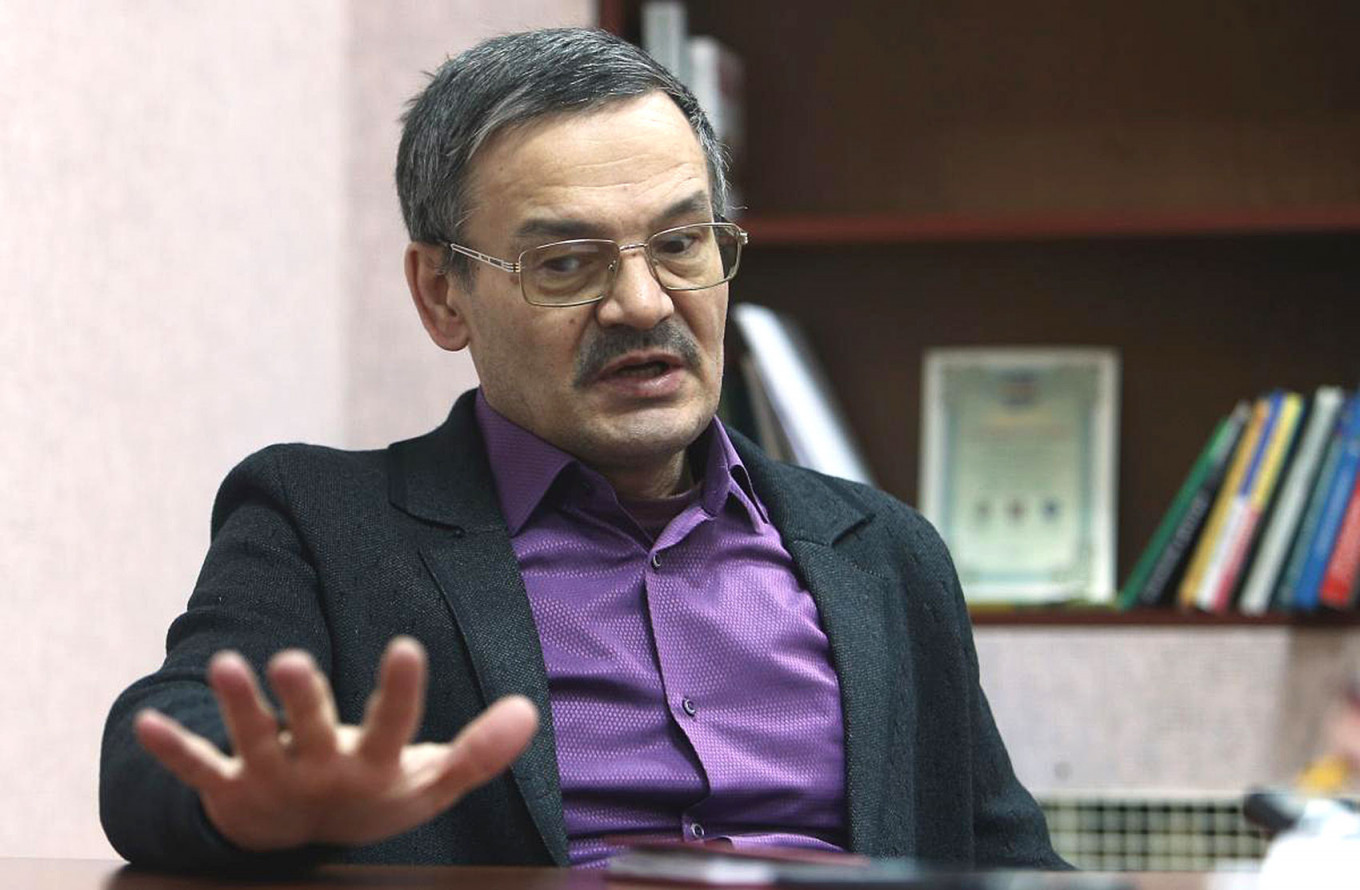
“We believe that the Russian invasion of Ukraine will bring about the fall of the empire,” he told The Moscow Times in a telephone interview.
Ethnic activists from Russia, including Kashapov and Gabbasov, gathered earlier this month at the Free Nations of Russia Forum in the Polish capital Warsaw to discuss how the Ukraine war has impacted their communities, and what they can do to obtain more autonomy.
Forum participant Pavel Sulyandziga told The Moscow Times that Russia’s future is being “actively discussed” among communities such as Buryats, Sakha and Kalmyks.
However, he was cautious about the prospect of an imminent collapse of the Russian Federation — which, in its current form, grants some non-Russian groups a degree of independence in so-called “ethnic homeland regions.”
“Minor indigenous peoples do not have the necessary preconditions for self-determination, and we will be forced to remain minorities no matter where we live,” said Sulyandziga, who heads the Batani fund for indigenous peoples in Russia.
Different ethnic groups in Russia do not have a common position on what political changes they would like to see, with aspirations varying according to size, history and outlook. For example, the political options for Bashkortostan – Russia’s most populous, resource-rich ethnic republic located between the Volga River and the Ural mountains – are very different to those of tiny ethnic groups that may number just a few hundred people.
Activist Gabbasov suggested Ukraine could be a political model for the Bashkirs.
“Our project is one of a political nation like in Ukraine, where a Jewish president is leading the state and ethnic Georgians, Chechens, Crimean Tatars are fighting alongside [ethnic] Ukrainians and all equally consider Ukraine their motherland,” he said.
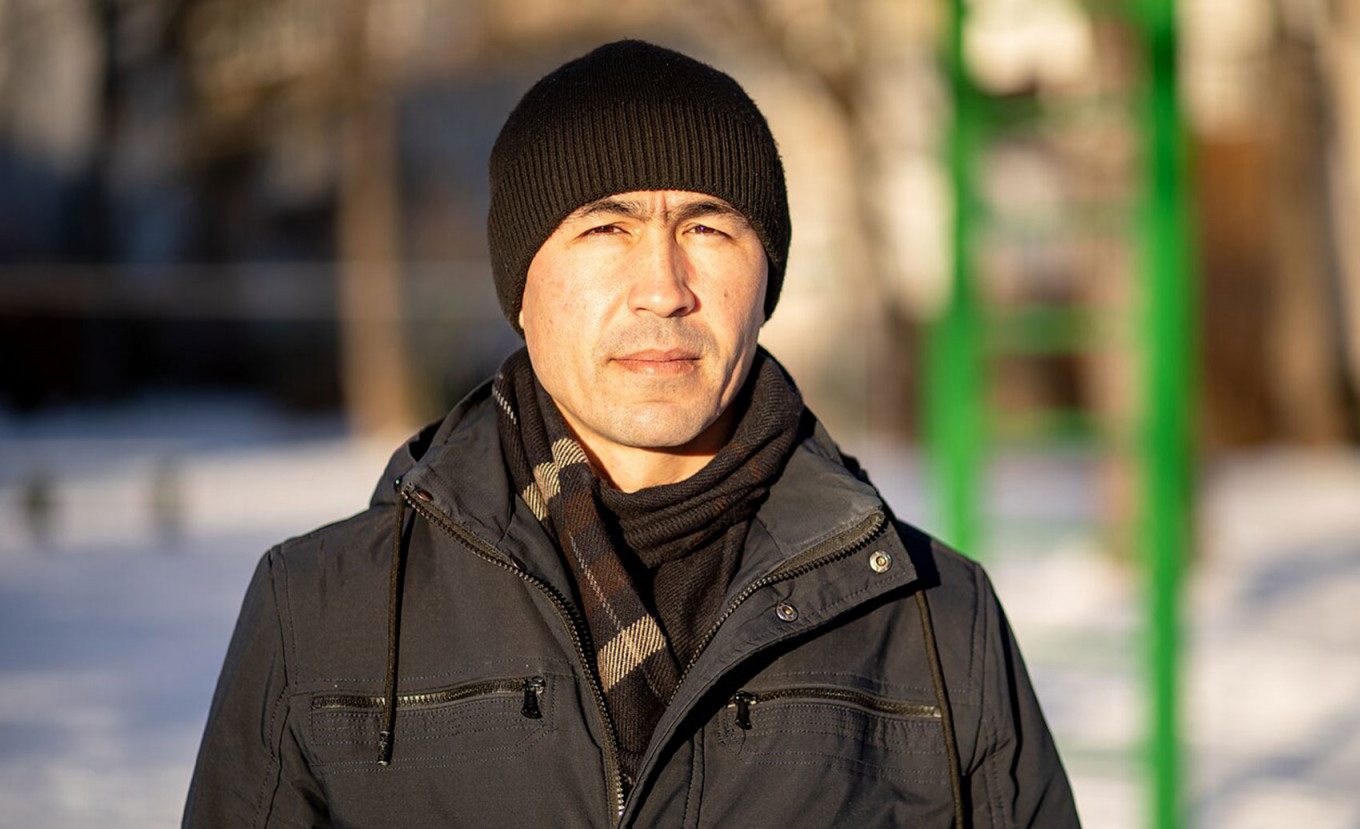
For many ethnic groups, the Kremlin’s war in Ukraine has reminded them of Russia’s imperial conquest of their homelands and recent policies of “Russification,” including the exclusion of minority languages and local history from school curriculums.
Perhaps the most stark illustration of the unequal relationship between indigenous groups and ethnic Russians has been the record numbers of Russian soldiers from non-Slavic ethnicities killed in Ukraine.
With 143 killed soldiers, the North Caucasus republic of Dagestan tops a ranking of regional deaths compiled from open sources by independent media outlet iStories. In second place is the Siberian republic of Buryatia with 113 confirmed deaths. Just a handful of soldiers from large cities like Moscow and St. Petersburg have been reported killed in Ukraine.
Russia has not published official figures on the ethnic make-up of its military losses in Ukraine, and has not updated its overall death toll since March.
“An open linguicide and ethnocide [has been] happening. Today, genocide has been added to this both in relation to the Ukrainian people and in relation to indiginous peoples of Russia whose representatives are sent to the war for slaughter,” Gabbasov told the Warsaw conference, media outlet Idel.Realii, a regional affiliate of the U.S.-funded Radio Free Europe/Radio Liberty, reported.
While it is hard to gauge the exact level of support on the ground for greater independence from Moscow among Russia’s non-Slavic peoples, there is evidence of growing interest in learning about national languages and histories.
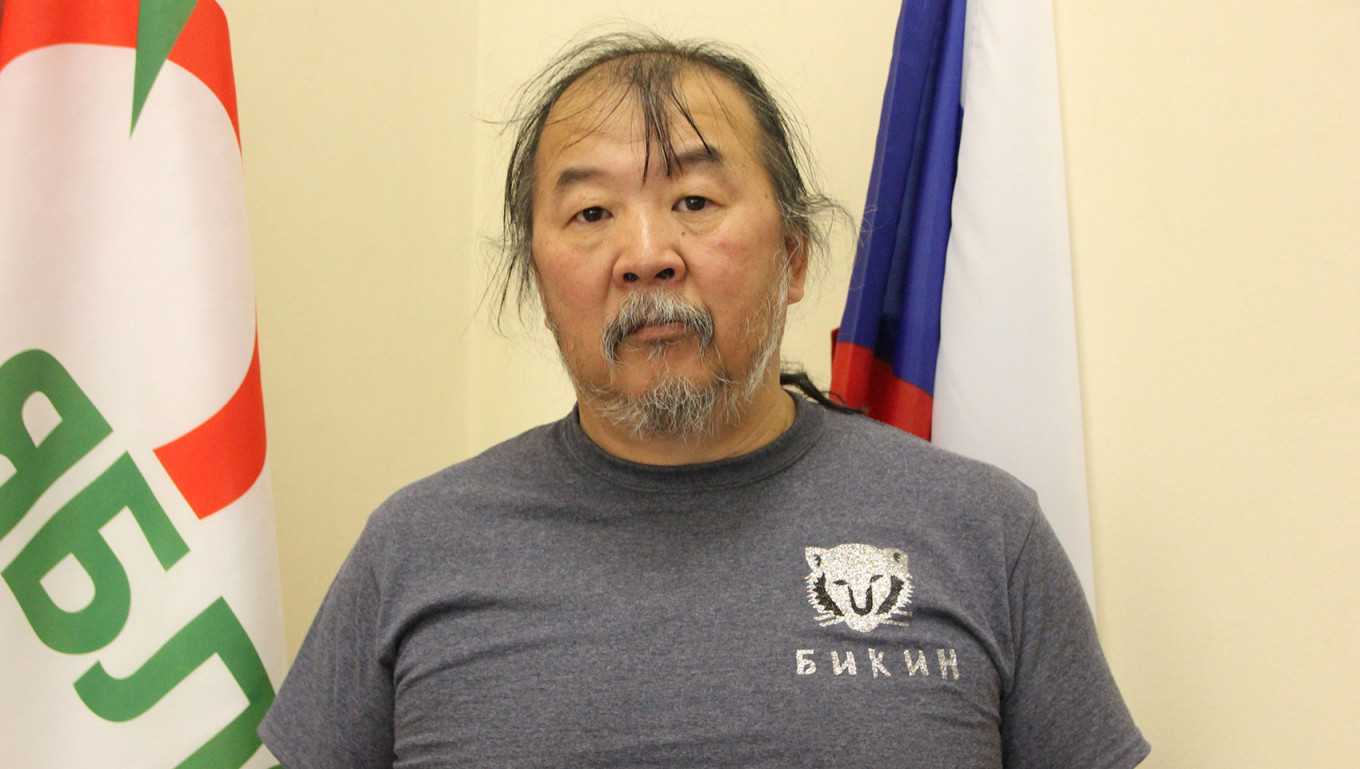
“I’m so ashamed that before the war I knew nothing about the culture that I was brought up in and that is native to me. I never really spoke the native tongue,” a participant wrote earlier this month in a closed chat on the Telegram messaging app seen by The Moscow Times.
Fear means many people are reluctant to express dissent, according to activists.
“People are very scared,” Sulyandziga said when asked about the mood among the communities in Russia’s Far East and Siberia.
“We receive a lot of messages saying that many people in indigenous communities, particularly mothers whose children have been sent to the war, are speaking out… [But] unfortunately, most of those whose family members have not been sent to the war choose to stay silent or support this victory-mongering,” he said in a telephone interview from the United States, where he received asylum in 2017.
Russia’s ethnic minority rights advocates have operated under the threat of “extremism” charges since the early 2000s, and most currently live abroad.
“I can’t say my activities have become limited [since fleeing Russia]. On the contrary, I can do more... because I feel free and finally able to say what I think,” said Gabbasov.
Sulyandziga said that although being in exile limits what he can do, he remains hopeful.
“I keep doing my work because our [indiginous] peoples reach out to me on a daily basis. Their rights are violated, and they cannot find justice,” he said.
“History teaches us that, sooner or later, all empires fall or transform.”
A Message from The Moscow Times:
Dear readers,
We are facing unprecedented challenges. Russia's Prosecutor General's Office has designated The Moscow Times as an "undesirable" organization, criminalizing our work and putting our staff at risk of prosecution. This follows our earlier unjust labeling as a "foreign agent."
These actions are direct attempts to silence independent journalism in Russia. The authorities claim our work "discredits the decisions of the Russian leadership." We see things differently: we strive to provide accurate, unbiased reporting on Russia.
We, the journalists of The Moscow Times, refuse to be silenced. But to continue our work, we need your help.
Your support, no matter how small, makes a world of difference. If you can, please support us monthly starting from just $2. It's quick to set up, and every contribution makes a significant impact.
By supporting The Moscow Times, you're defending open, independent journalism in the face of repression. Thank you for standing with us.
Remind me later.



